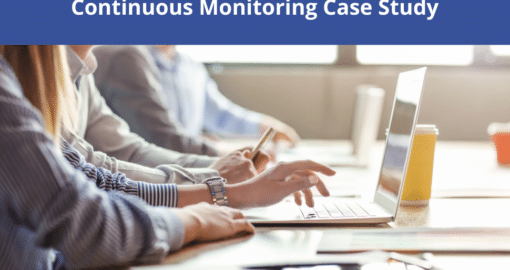Call Us Today (877) 943-0100
How Often Should You Run Continuous Background Checks On Your Contractor And Vendor Network?
Background Screening | May 27, 2021
When working with new prospects and customers, we often get the question “How often should companies run continuous background checks on their contractor and vendor network?”
Rescreening is the process of completing continuous background checks on a contractor throughout their engagement in the network. This is important because behaviors and information may change after an individual is engaged that could bring risk to your organization. Most service contracts contain a rescreening clause as means to reduce liability, send a message to the network about the professional standards and expectations of its participants and to protect the legal and reputation concerns of the organization. Having exposure to many different customers, network demographics, compliance approaches, contracts, and programs, one consistent practice we see is a rescreen cycle of two years.
Why you should run a background check every two years
When considering why this is our best practice recommendation, we keep in mind the type of network a prospect or customer has, the movement of contractors in and out of their network, the impact that continuous background checks have not only on their relationships with their contracted workforce, and the cost and logistics of constant background check submissions. We also consider the likelihood of an issue arising between rescreen cycles and the timing for such an item to be reported and of impact.
Our data tells us that less than 10 percent of the network will become ineligible for work during the rescreening process with 51 percent of those situations due to drug test results, 34 percent due to criminal results, 13 percent due to MVR results, and 3 percent as a combination of at least two of the above. The data used here was a point in time sampling across varying U.S. service provider networks in differing industries and larger sample sizes the numbers may result in slightly higher numbers, but this is felt to be directionally accurate for most PlusOne Solutions Customers. This data is also important because if 90 percent of the network is likely to remain in compliance, the effort and cost of rescreening on a more frequent basis needs to be considered.
In cases where an issue does arise, specifically a criminal issue, the time it takes for that arrest or booking to work its way through the formal judicial process is also a factor in rescreening timeframes. Many criminal cases can take upwards of 8 to 10 months to reach the courts, if applicable. This has only been exacerbated by the recent delays and closures in 2020 due to the pandemic, social unrest, and natural disasters such as forest fires and flooding, all of which resulted in court dates being pushed out, sometimes multiple times.
When networks are required to rescreen, the goal is not only on obtaining updated information but also to complete data that can be used to determine ongoing compliance. Two years has consistently been the norm for rescreen cycles, with some projects or programs containing shorter cycles for specific reasons. We rarely, if ever, see three-year cycles, or a one-and-done approach where no rescreen is completed after the initial background check. To demonstrate ongoing due diligence, most of the background checks done in the rescreening are robust and thorough checks which complement the original search instead of just completing a quick web search that provides little relevant or helpful information.
Many organizations have also elected to add continuous criminal record monitoring into their rescreen cycle. This provides a proactive way to monitor county-level criminal record activity and becoming best practice to reduce risk in the network between more comprehensive background checks.
Balancing the purpose, data to be obtained, the size of your contractor and vendor network, and industry best practices will allow you to understand which rescreen timeframe is best suited for your organization.
Contents are provided for information purposes only and should not be construed as legal advice. Users are reminded to seek legal counsel with respect to their obligations and use of PlusOne Solutions services.
About PlusOne Solutions
PlusOne Solutions has been an industry leader in the risk management field by specializing in compliance programs that meet the complex challenges of geographically dispersed contractors, vendors, and employee networks. PlusOne Solutions protects companies from possible financial, legal, and reputational risks associated with contractor and vendor relationships while creating safer work environments. To learn more, visit https://www.PlusOneSolutions.net.
To receive these updates directly in your email inbox, sign up for the newsletter. Questions or comments? We want to hear from you.
5 Ways Background Screening for Contractors Differs from Employment Screening
When you have an employee clocking in each day, whose work is...
Read MoreContinuous Criminal Monitoring: Proactively Monitor Contractor Networks
Since there is usually a two-year cycle from one background check to...
Read More6 Ways Our Contractor Screening Program Meets In-Home Service Industry Needs
With decades of experience in the contractor screening space, our founders knew...
Read More


